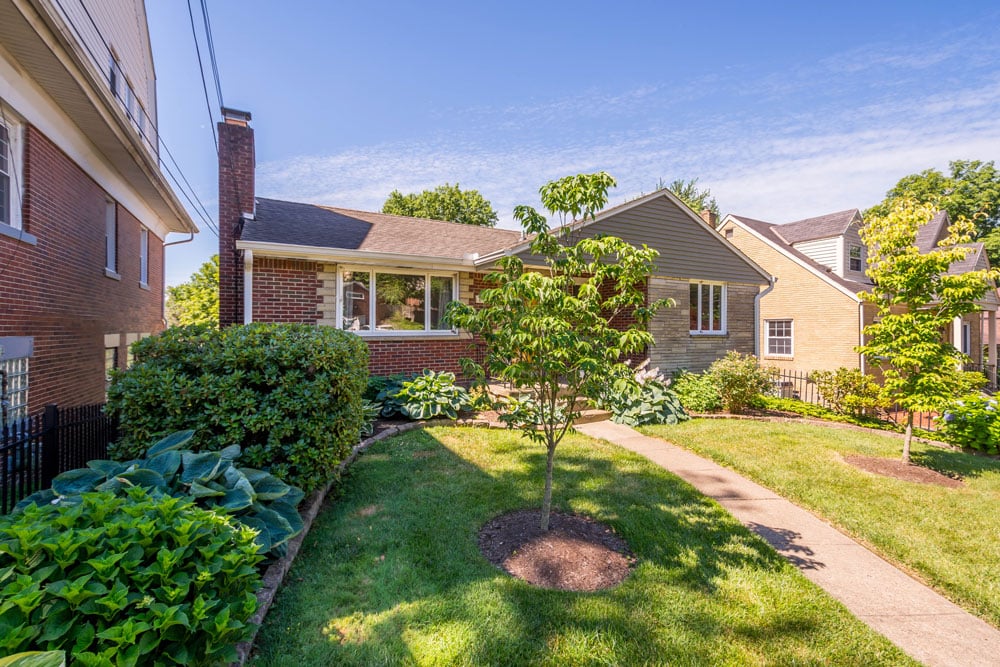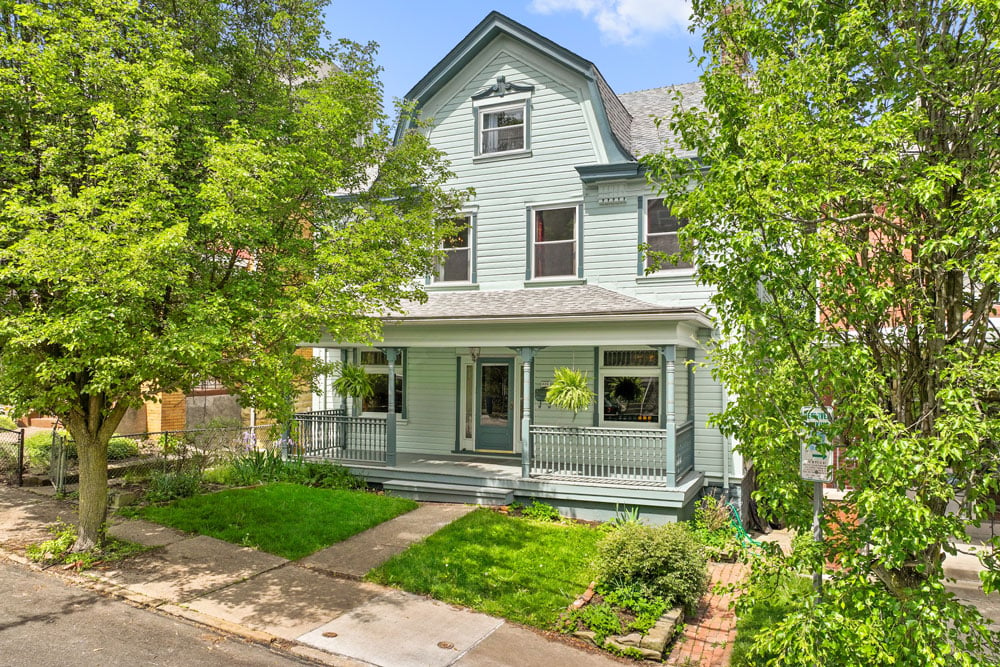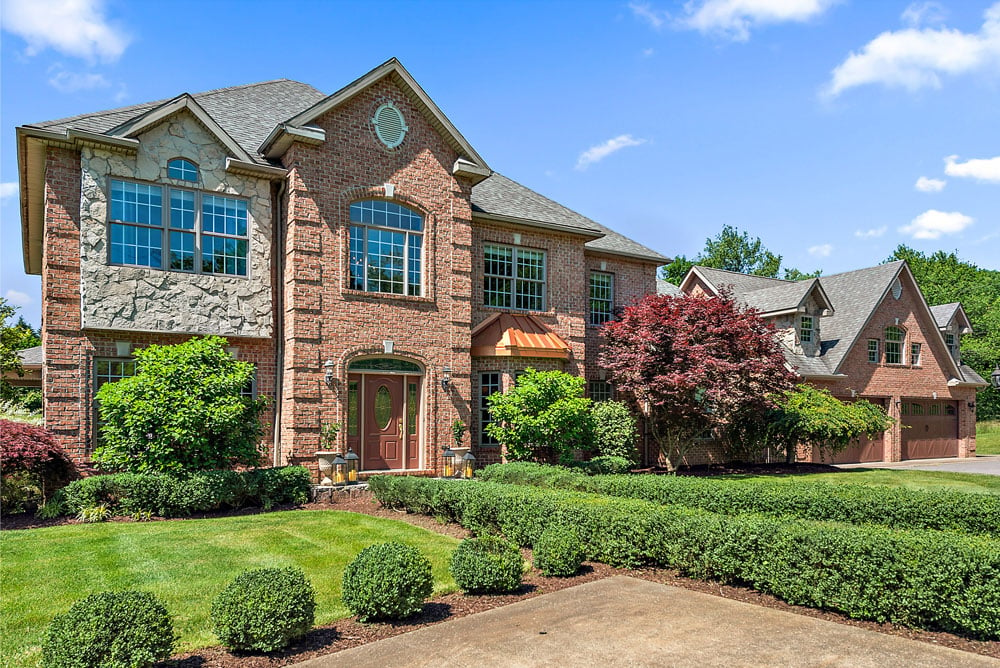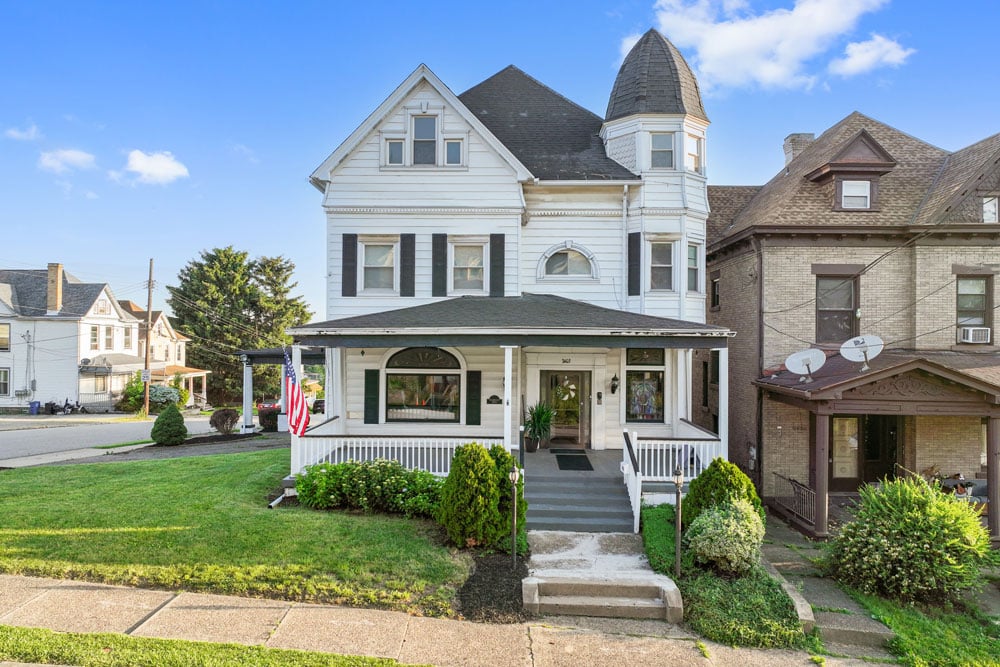Pittsburgh Realtors Are Using AI to Sell Homes
From simple virtual staging to virtual-reality tours, technology is changing how people buy homes in Pittsburgh.
Technological advancements and artificial intelligence are changing the way every industry functions — including real estate.
“Looking at houses online is like swiping on dating apps,” says Adam Cannon, who leads The Cannon Group in Pittsburgh at Piatt Sotheby’s International Realty.
Photos, even good ones, rarely tell the full story of a house. It’s even more difficult when those homes or apartment complexes are vacant, or not even built yet. “People can’t wrap their minds around an empty room. It’s not sexy,” adds Cannon.
That’s where technology comes in. Tools such as digital staging, drone tours, 3D photo walkthroughs and virtual reality immersive experiences are changing the way consumers buy homes at a rapid pace.
RE/MAX Select Realty agent Sarah Madia says each home she sells requires tailored marketing techniques, and advances in technology give agents and sellers more options.
“The more info I can provide to a potential buyer, the better they can envision themselves in the home,” she says. “My job is to sell the home, so I want to make that happen.”
For some, that means placing digital furniture in photos of vacant homes so buyers are better able to visualize the space. Other listings require a combination of classic staging and technological help.
To best showcase her recent high-end listing at 5510 Margaretta St. in the East End, Madia chose traditional staging in the main house but hired an artist to use AI technology to showcase the carport as an additional outdoor entertainment space.
“Most people can’t see it, so I provide visual cues,” Madia says.
She chooses specific furniture styles and color palettes to send to graphic artists for her vision of the homes in the same way she would guide physical staging — and it’s still a hands-on process. “Sometimes we go through three or four rounds of revisions before it looks right,” she says.
Beyond AI-assisted photography, there are more elaborate ways to showcase a home, but it’s still an emerging field, says Chris Dickson, president and broker of record for Piatt Sotheby’s International Realty.
For example, faced with the inability to show homes during the pandemic, the agency began experimenting with virtual home tours on headsets such as the Meta Quest, at the time, and now Apple Vision Pro, which can be viewed from anywhere in the world.
Dickson says the realty group teamed up with Perspectrum, a local media company, to make true-to-life, virtual reality walkthroughs.
“The goal is for the user to feel a sense of scale, something that 360 photos can’t give you,” he says. “Three-sixty photos are nice, but when you can virtually walk through a space, it’s on another level.”
The group began with local luxury homes, including Highland Park’s historical Baywood Manor (known as the King estate), which has been listed on and off the market since 2020. Using a headset, remote potential buyers are able to gaze up at the manse’s ornate ceilings and reach out to “touch” intricate woodwork.
His agency also uses professional drone pilots to create flythroughs, which allows prospective buyers to get a better sense of a home before viewing it in person.
Dickson expects this kind of technology to become more accessible and more commonplace in the future.
“Right now, the usage is limited by the cost and ease of creating the tours,” he adds.
While the tactile experience of walking through a home in person will never go away, using the technology-assisted options for out-of-town buyers, or those who want to get a better feel for new construction, is key to what’s next in home buying, says Ryan Riley, a real estate advisor for The Cannon Group at Piatt Sotheby’s.
“We as listing agents now have all these tools in our toolbox to find the right buyer,” he says.
















